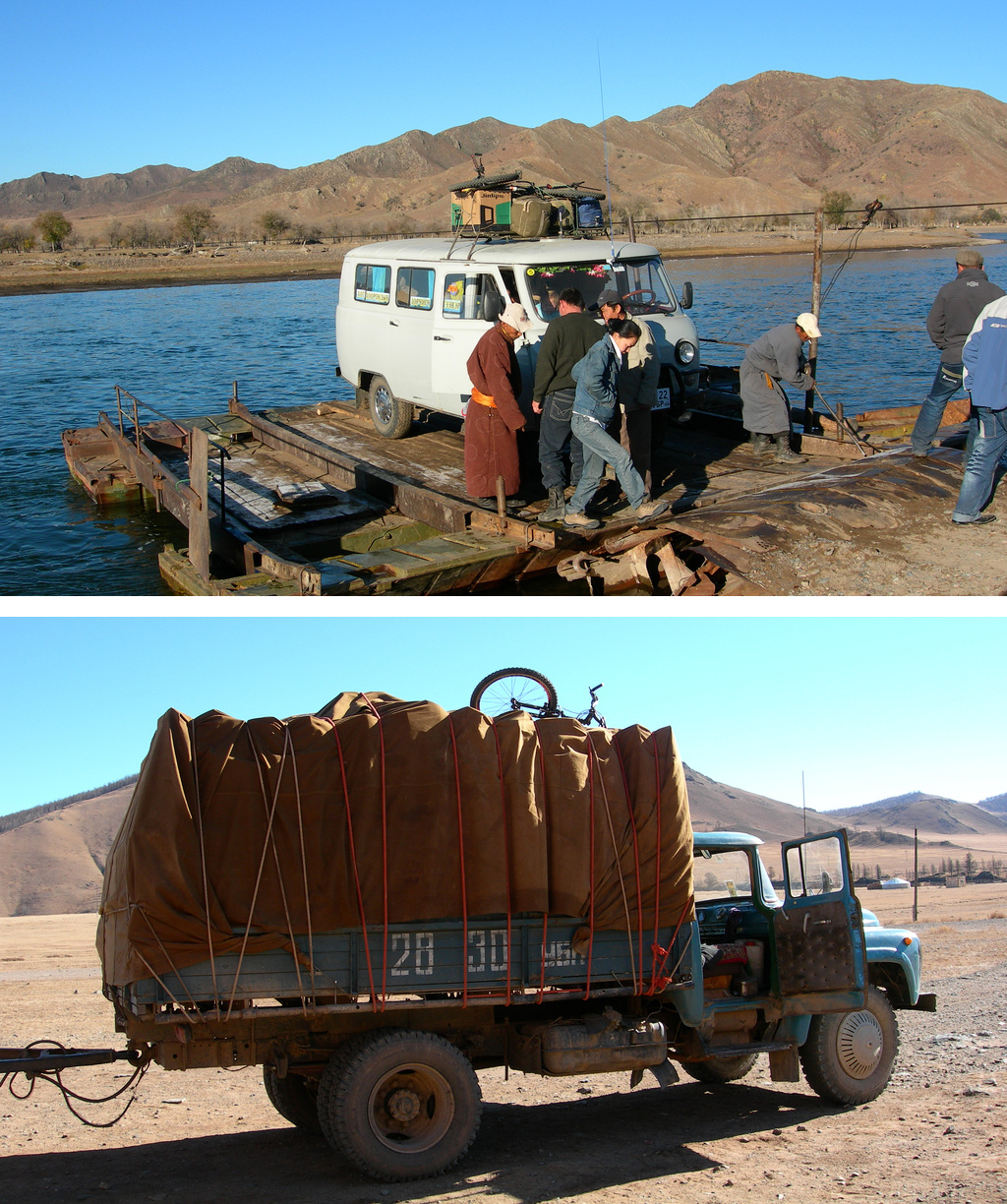7. BIKING IN THE NORTH
The plan for my last month in Mongolia began when I left Olgii. I opted to take a shared public van back to Ulaan Baator instead of flying. Five days driving 18-21 hours a day in an unheated Russian van with 18 people isn't quite luxurious. There were some very cold, very frustrating moments. I spent a good deal of time daydreaming about racing through the streets of New York on my little red bicycle. When I finally arrived back in Ulaanbaatar, the first notions of an epic bike ride were sloshing around my brain.
After two months of intensive family time - sitting in kitchens around countryside stoves drinking salt tea and eating butter and mutton, I was ready to spend my last few weeks on the road. I wanted to be able to be both mobile and self sustainable, while covering a lot of ground. I also wanted to visit families within a broader range of experiences and relationships to the land. So, I bought a bike in Ulaan Baatar, made some saddlebags, and gathered appropriate gear. I then left for a 1,000 km journey from Khovsgol Nuur in the far north down to Ternyn Tsaagan Nurr (The Great White Lake) in the south, and back to Ulaan Baatar.
The trip was a mix of biking, hitchhiking and walking. All along the way I stayed with families, truck drivers, and in guanzes (roadside canteens). I traded bike rides for horse rides and conversation or gifts for late night lifts and meals. After the first week, there was an unexpected snowstorm (about two feet in 24 hours) which grounded me in a cosy ger in Hatgal for a good six days at the North Lake.
After the snow, no one really let me sleep in my tent anymore and people always brought me home wherever I traveled. It was fortunate after gaining a certain amount of context and insight into nomadic community out west, to be able to pass through such a diverse area, such beautiful valleys and visit so many homes (up around twenty) in a short period of time.
Most of the time I was very much alone and the terrain was difficult. Mongolia, especially the area I chose to pass through, is probably not the easiest place to bike - especially while carrying food, water, a tent, a stove and a host of other heavy things in a haphazardly constructed system of bags and clips and rope. I must admit that I spent more than a few hours cursing and shaking my fist at the strong winds, sandy or icy roads and the many mountain passes. But it was good to be satisfied with just moving, to set my own pace without clock or compass or thermometer or gsm.
I give my many thanks to the kind truckers who picked me up and offerd me some shelter from the wind with conversation, company and bottles of vodka (even the one or two who didn't really take me farther along the road as promised, but ratehr droped me off on the side of some mountain, a "short cut" that at least gave me a gorgeous sunrise and a thrilling morning downhill run). Traveling with truckers was a whole new experience. In a country without roads or a reliable postal service, truckers are valuable people and as such, truckers friends and “family’ in every town they pass through. There is always someone who will welcome you in with tea and food, with a bed to lie back in and a fire to warm your bones.
I am still amazed by conversations I had while in Mongolia and the things the community shared with me. To some extent this has continued even since I've been in China. I am completely unable to spend a day not thinking about my project. Everywhere I go, it effects how I look at homes and housing and neighborhoods. There is no need to romanticize the nature of this shift or the current state of nomadic life in Mongolia. Countryside life is difficult. Housing is a problem everywhere. People are struggling in the cities, but there is also a great deal of money and people continue to flock to the promise of jobs and easier lives. It was not difficult at all to get Mongolians to speak about these issues, about their lives or their homes. It often seemed that this was all people talked about. Everyone had an opinion and a new perspective. I only needed to be present, to try to learn to listen, to find ways of understanding.
Minutes before I left Ulaan Bataar, I ran into a man who had just come back from a three-month motorcycle journey throughout Mongolia and Kazakhstan. I realized that I had seen him riding out west from horseback. We spoke for a while and then parted with some last minute advice that I was to remember until I came back from the countryside. He said, “You are going to be very lonely on the road. Ask everyone you see for directions, even if you think you know the road. Don't hesitate to turn around. Stop at every ger. Always accept food and sing often.





